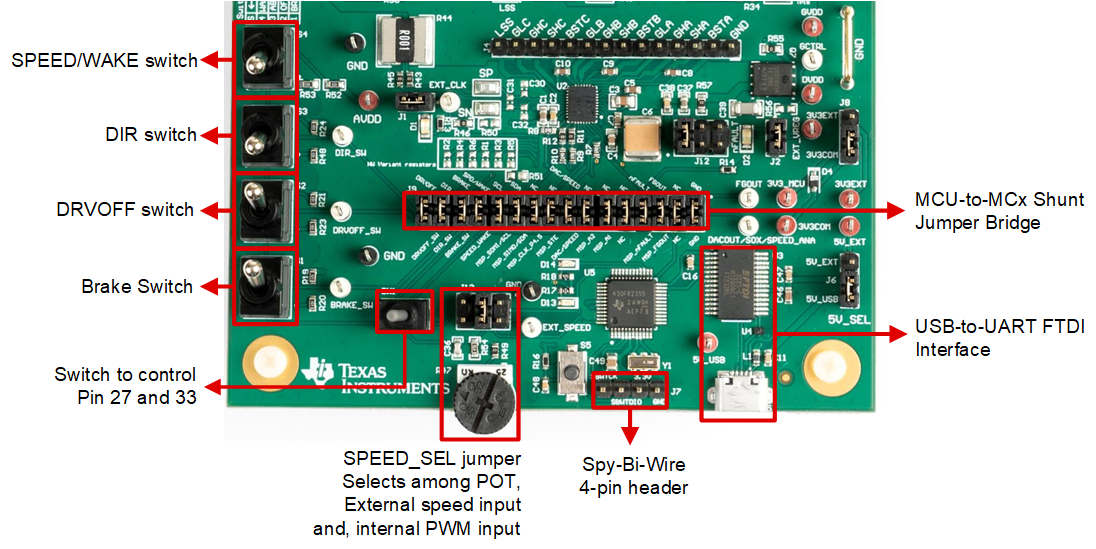SLLU373 November 2023
2.5 MSP430FR2355 Microcontroller
The MCF8329EVM includes a MSP430FR2355 low-power MCU, shown in Figure 3-5, to communicate via I2C with the MCF8329 IC.
To program the MSP430FR2355, an external MSP430 FET programmer must be connected to the Spy-Bi-Wire (SBW) interface connector J7. Many MSP430 LaunchPads™ provide an onboard eZ-FET Debug Probe that can be jumper-wired to the MCF8329EVM to flash the firmware into the onboard MSP430FR2355 microcontroller.
The user can use the Reset (RST) button at any time to restart the MCU program. Two active-low LEDs, D13 and D14, can be used for debug purposes as well.
The 32-pin shunt jumper bridge J9 ties all signals between the microcontroller and MCF8329 IC. These jumpers can be inserted or removed as needed to isolate the microcontroller from the gate driver. This allows for microcontroller signal debugging or using the MCF8329EVM as a standalone gate driver with an external microcontroller.
 Figure 2-5 MSP430FR2355 MCU on MCF3829EVM
Figure 2-5 MSP430FR2355 MCU on MCF3829EVM